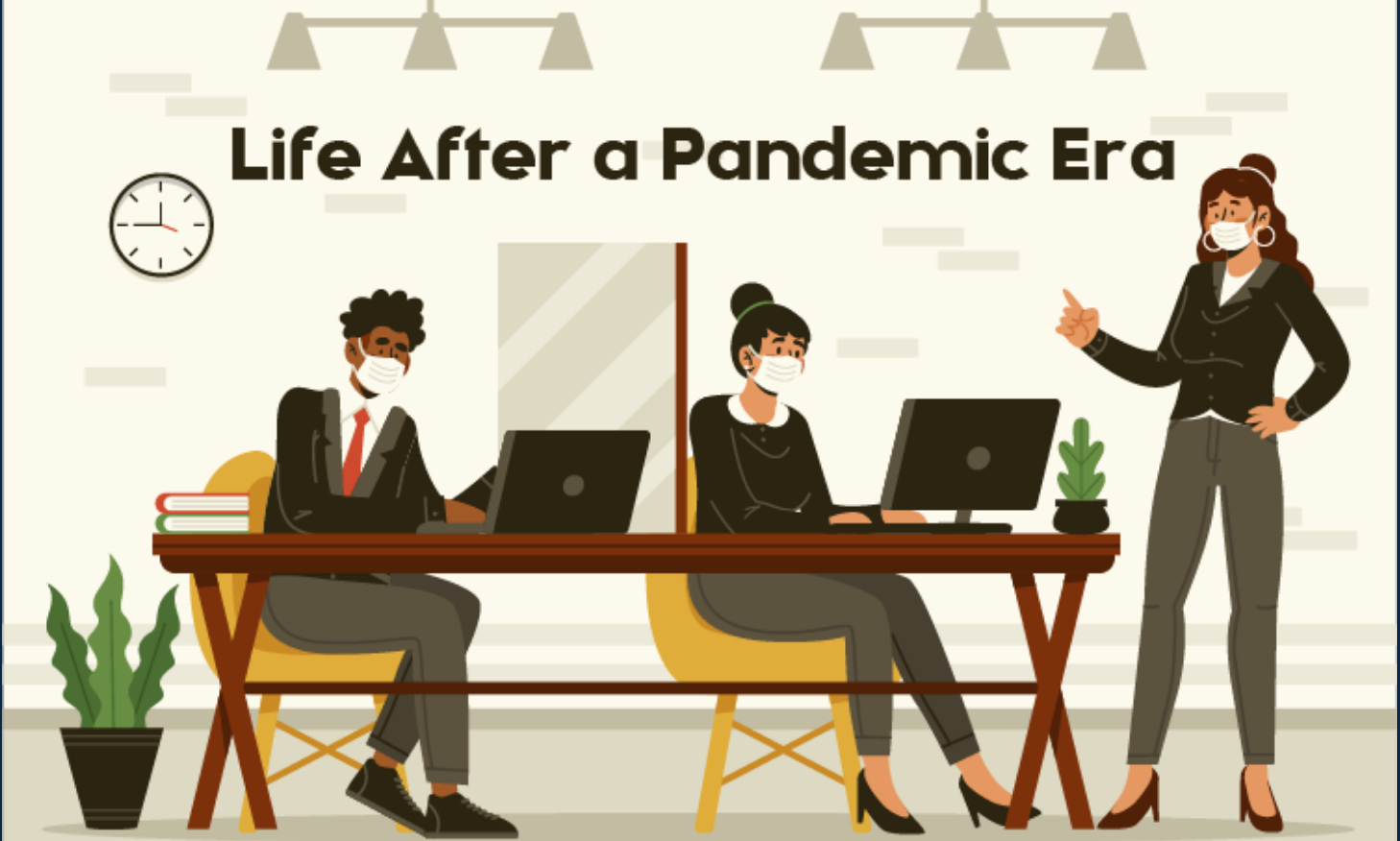
Life after a pandemic era
The first outbreak of SARS-CoV-2 (commonly called coronavirus) was reported in a Chinese city called Wuhan in Dec 2019. Since then, a lot of new variants namely Alpha, beta, gamma, delta and omicron have emerged and spread all around the world like a forest fire. These all have contributed to 5.25 million human deaths across the globe. This makes it the deadliest pandemic in the history of mankind. Maximum transmission is believed to occur when people breathe in air contaminated by droplets and tiny airborne particles. Most of the countries advised social distancing as the most effective preventive measure against its spread. Few vaccines namely Covaxin, covishield, sputnik were invented to minimize the spread of this virus. Amid these points, there are numeral ways in which life won't be as same as it was before Covid. Some of those are:
- Shaking of hands would be replaced by the Indian way of greeting 'Namaste'.
- Self-isolation and social distancing would be more prominent preventive measures whenever one doesn't feel well.
- Instead of a welcome drink, people would be welcomed by a sanitizer at hotels, restaurants, theatres, etc.
- Work from home would be more dominant than working from the office. During quarantine times, most of the corporate industries promoted WFH culture to prevent the spread of the virus. Thus, more attention would now be given to the arrangement of the workplace at home.
- Social interactions, meetups, parties would be preferred online rather than physical meetings. Zoom calls would be preferred more over conventional meetings.
- From an economical point of view, businesses would prefer more go green initiatives and more green jobs would be introduced. Workers would prefer a safe and isolated working environment over a conventional one.
- Remote learning and online education to students would be preferred more by their parents instead of sending them to schools/colleges. This would affect the traditional schooling methods which have been adopted for a very long time.
- People would realize the importance of mother nature. Parks, mountains, beaches have grown as safe spaces for people scratching the itch to get out of their house.
- A sense of gratitude would be more towards essential workers who also worked day and night during the pandemic times.
- More emphasis would be given to mental health which was not the case before the pandemic era.

 Comments (5)
Comments (5)









